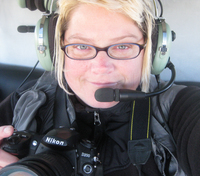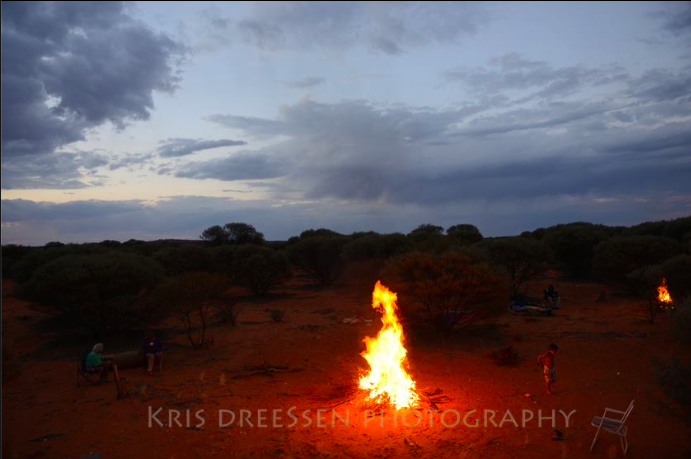
Life from the top of the 4-wheel-drive and "swag" tents out in the bush, helping the Ngalia Aboriginal mob document a sacred part of their living history.
We are on the road hours east of Leinster, western Australia, in the out out back, following the "yiwarra," or path of the carpet snake, during the dreamtime, when the beings made their country.
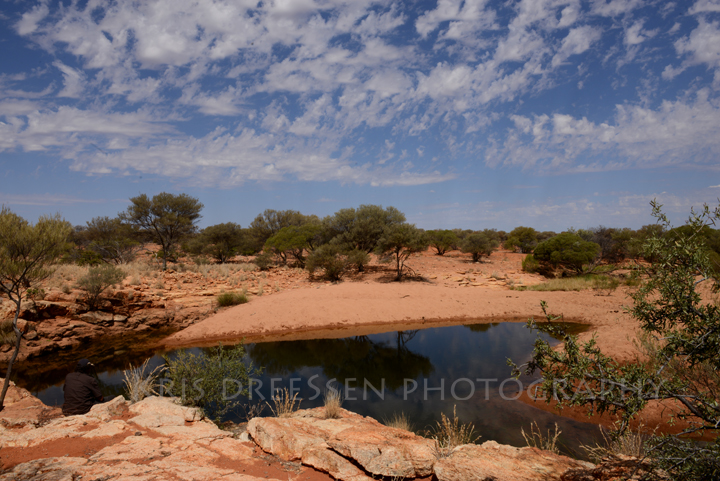
At Townsend Well, there is an old well, covered now by time and concrete. Below it, on this spot, before the colonists turned it for agricultural use, carpet snakes moving across the land came out from here, and made the hole. The water.
Further down, the married snakes and the single snake were chased by a dragonfly being, who killed and skinned them, then roasted them over the fire for a feast. All of the land aroudnd this rock formation was filled with beings, and they left possessions here. This is the rock.
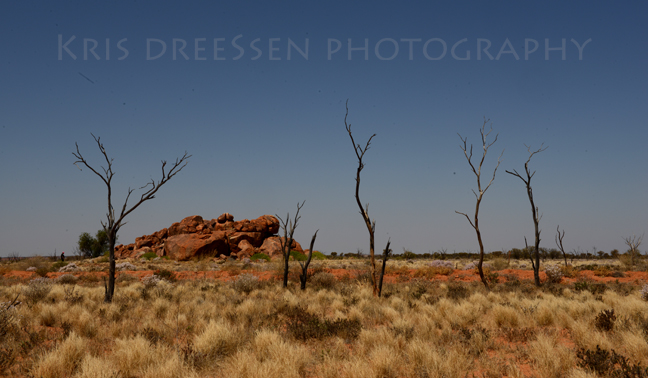
It is the story of life of the bush, the seeds they find to eat, the plants that sustain them and the water that seems so ... nonexistent here ... if you don't know where to look.
But they do.
They are connected to the land, and the ancestors, who are not dead and remembered only, but around them at all times.
They belong to the land and are caretakers. They would take what they needed and no more, to keep the balance.
This country is ripe with mining interests: Without opposition the Aboriginal mobs have given for decades on this spot, this spot right here, under the wheels of the 4-wheel would be an open pit.
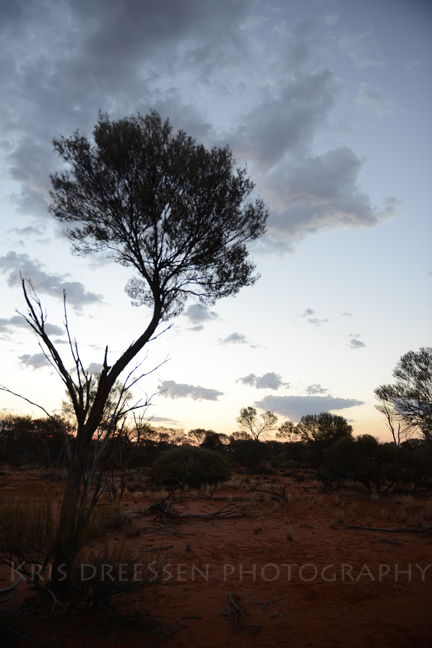
We find relics, sacred to their experiences here, when they lived out bush, or worked on the cattle stations. At Dingo Pool, Kado finds a bottle, which people chipped off the bottom for cutting edges and other tools.
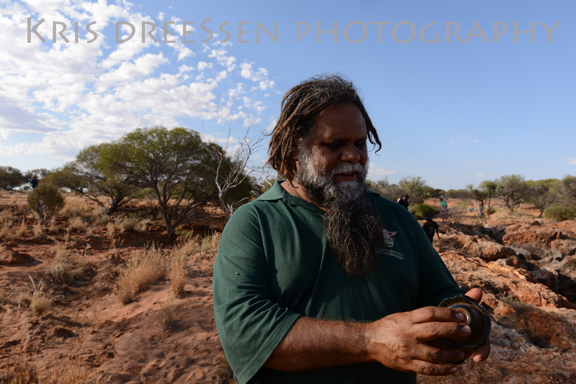
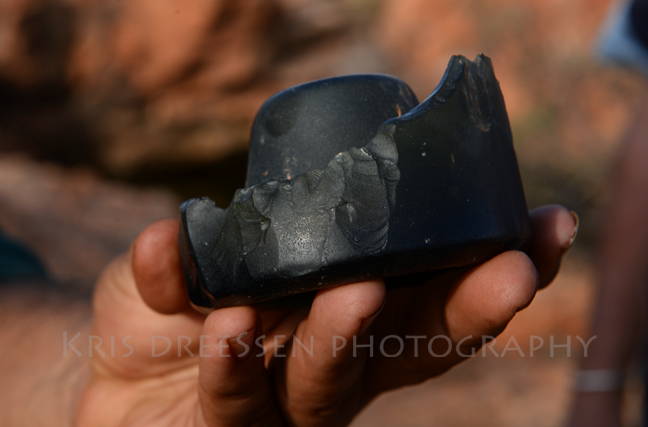
We leave it all. Take nothing. It belongs there, and the hope is that archeological studies will be conducted here for preservation.
The mobs I have been with do not talk much as we are out here. No one fills the space. The space is part of being together.
We camp in small tents or the swags - which are tents and roll mattresses in one - or on a mattress under the stars, waking up at the dawn and cooking "damper" bread and kangaroo over coals and heating water in billy cans for tea until the stars are twinkling above and you sleep with the earth.
Sometimes I feel an urgency; to ask questions, to quell my curiousity, and it is not really the way. I have so many. But the "yiwarra" is not linear, I am told, all parts are of equal importance. It is hard for me to follow sometimes, so foreign to our way of doing things.
But when I sit back - or up high as it is - I discover the "yiwarra" must be like this. All the time. My path, and theirs.
It's a grand view, from any angle. Miles and miles of red dirt and open sky and lessons of the earth to be learned by man's oldest-living culture — 65,000 years.
— at way way out there, Western Australia outback.
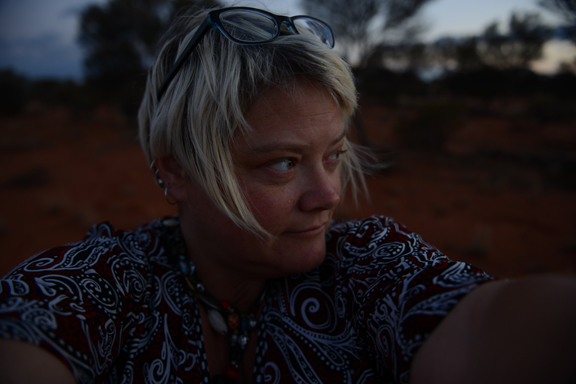
me in Ngalia country
